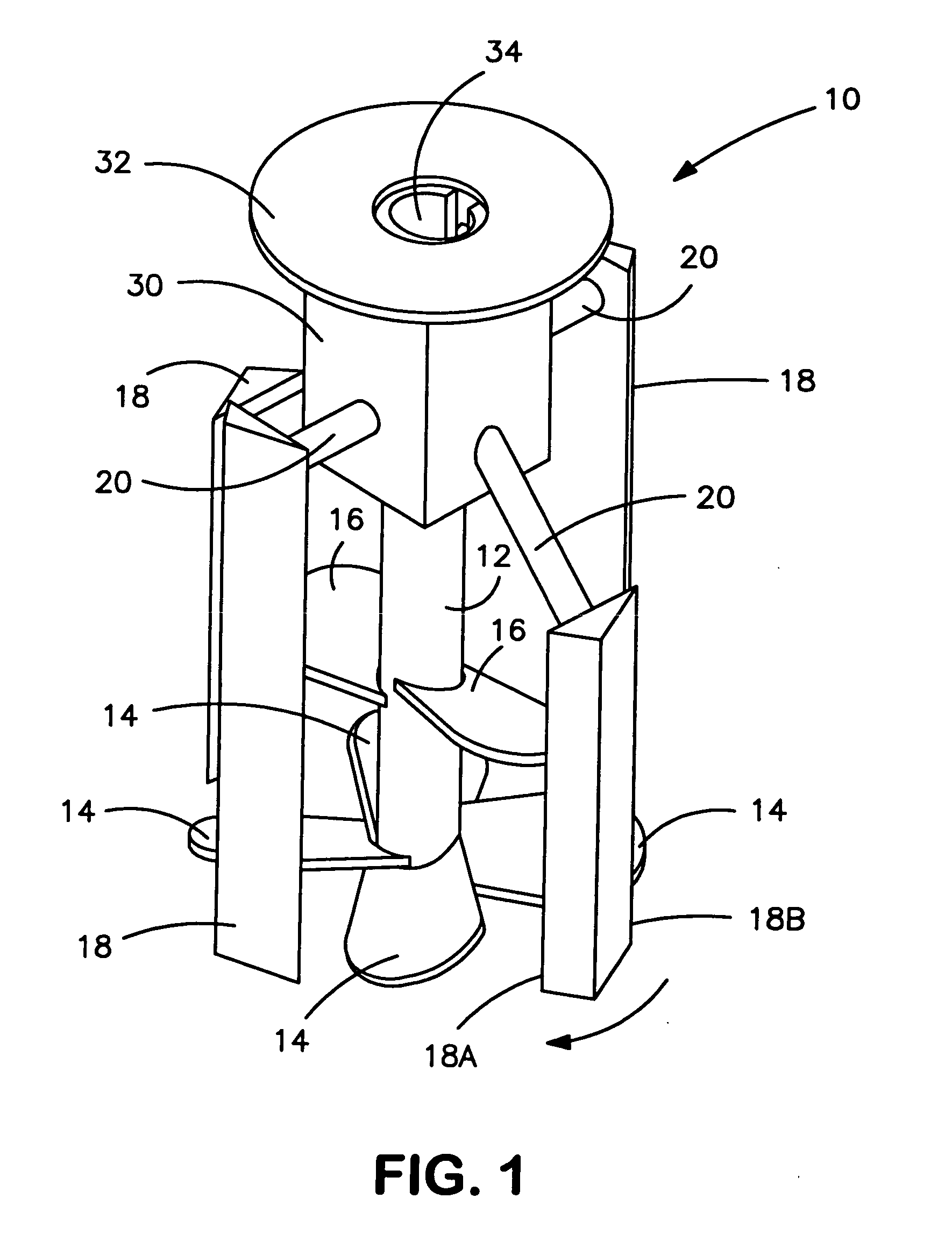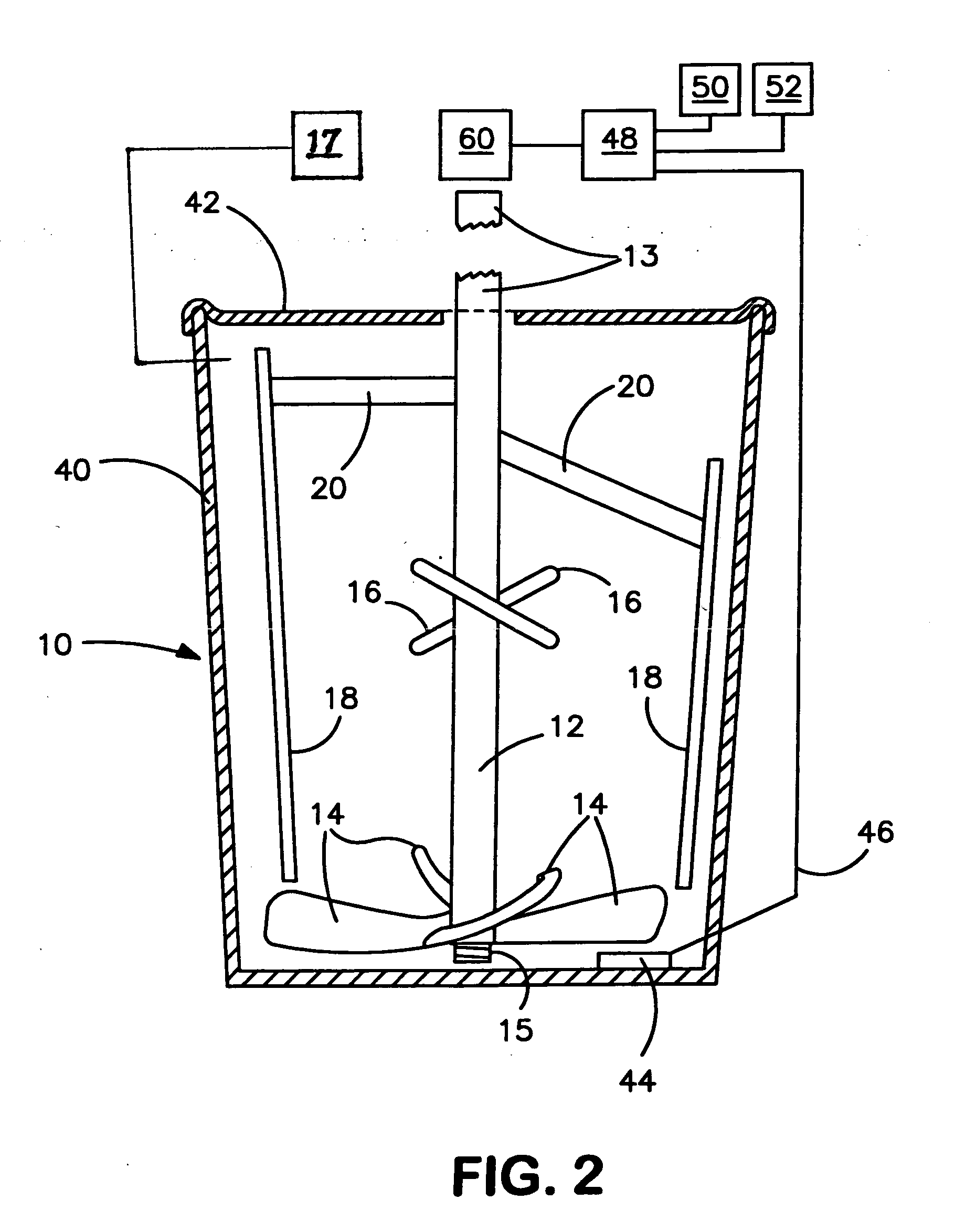Rheological and calorimetric testing method
a rheological and calorimetric testing and measuring device technology, applied in the direction of rotary stirring mixers, instruments, transportation and packaging, etc., can solve the problems of large errors in measured values, inaccuracy of rheometers, and significant inaccuracy in calculating the shear force applied to sample fluid, so as to minimize inaccuracy, accurately evaluate, and minimize inaccuracy
- Summary
- Abstract
- Description
- Claims
- Application Information
AI Technical Summary
Benefits of technology
Problems solved by technology
Method used
Image
Examples
Embodiment Construction
[0028] The exemplary rheomixer of the present invention is designed to work with servo-controlled electric motors (otherwise referred to as “servo-engines”) that are designed to rotate and to provide an electrical output signal that accurately corresponds to the amount of torque applied, such that, in combination with the inventive rheomixers of the present invention, fluid samples can be quickly mixed and their torque resistance on the rotated rheomixer device can be quickly and accurately measured. Such servo-engines are able to stop and start with high precision, due to the fact that their electric motors contain numerous electric coils that provide nearly-instantaneous torque. A servo-engine believed to be suitable for purposes of the present invention is available from Samey of Iceland under the tradename Control Technologies™, and other suitable servo-engines are elsewhere available.
[0029] Preferred methods of the invention for mixing involve the ability of servo-engines to a...
PUM
| Property | Measurement | Unit |
|---|---|---|
| rheology | aaaaa | aaaaa |
| temperature | aaaaa | aaaaa |
| heat measurements | aaaaa | aaaaa |
Abstract
Description
Claims
Application Information
 Login to View More
Login to View More - R&D
- Intellectual Property
- Life Sciences
- Materials
- Tech Scout
- Unparalleled Data Quality
- Higher Quality Content
- 60% Fewer Hallucinations
Browse by: Latest US Patents, China's latest patents, Technical Efficacy Thesaurus, Application Domain, Technology Topic, Popular Technical Reports.
© 2025 PatSnap. All rights reserved.Legal|Privacy policy|Modern Slavery Act Transparency Statement|Sitemap|About US| Contact US: help@patsnap.com



